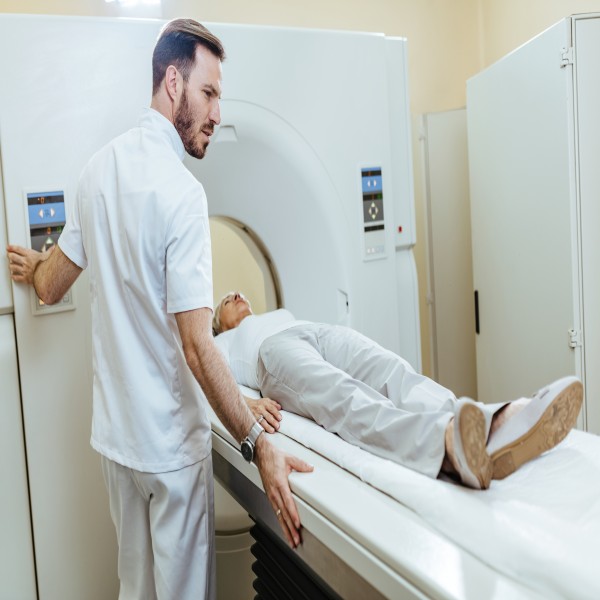Radiology
Nurturing New Beginnings
PROMOTING FEMALE HEALTH AT EVERY STAGE
We specialize in Radiology.
The diagnosis or treatment of disease at Malhotra Hospital through the use of radiation (such as x-rays) or other imaging technologies (such as ultrasound and magnetic resonance imaging). One of the best hospitals in Panipat is Malhotra Hospital, which provides excellent healthcare in a variety of areas, including radiology. The hospital is close by and offers quick and simple access to cutting-edge medical facilities, highly skilled medical professionals, and trained technicians that use cutting-edge imaging equipment to accurately diagnose and treat a variety of medical ailments.


At Malhotra Hospital, our radiology department is equipped with advanced imaging equipment and staffed by highly skilled and experienced radiologists who work in close collaboration with other medical specialists to provide the best possible care for our patients. Our services include X-ray, CT scans, MRI, ultrasound, and other imaging modalities to help diagnose and treat various medical conditions such as cancer, cardiovascular disease, neurological disorders, and musculoskeletal problems.
Whether you need diagnostic imaging or interventional radiology procedures, our team of experts is here to provide you with the highest quality care in a comfortable and safe environment. With a focus on patient-centered care, we ensure that our patients receive personalized attention and support throughout their diagnostic and treatment journey. So, if you are looking for the best hospital near you for radiology services, Malhotra Hospital is the perfect choice.
- Annual Exams
During these exams, healthcare providers can assess various aspects of a woman’s well-being, including reproductive health, cardiovascular health, and overall physical and emotional well-being. They often include a pelvic exam, breast examination, blood pressure measurement, and discussions about contraception, family planning, and any concerns or questions the patient may have.
Here are some of the check up and health screenings that you should get done:
- Pelvic Exam
- Pap Smear (Cervical Cancer Screening)
- Breast Exam
- Blood Pressure Measurement
- Cholesterol Screening
- Bone Density Scan (DXA)
- Blood Sugar Test (Glucose Screening)
- Thyroid Function Tests
- Blood Count (Complete Blood Count, CBC)
* The specific exams and screenings recommended can vary based on a woman’s age, family history, personal health history, and risk factors. It’s essential to discuss your individual healthcare needs and screening schedule with your healthcare provider.
- Vaginal Infections
Here are some of the most common types of vaginal infections:
- Bacterial Vaginosis (BV)
- Yeast Infections
- Trichomoniasis
- Viral Infections
- Sexually Transmitted Infections (STIs)
- Atrophic Vaginitis
- Non-Infectious Causes
It’s essential for individuals experiencing symptoms of a vaginal infection to seek medical attention. Accurate diagnosis is crucial because the treatment for each type of infection varies. Additionally, practicing safe sex, maintaining good hygiene, and avoiding irritants can help prevent vaginal infections.

Frequently Asked Questions
What is Radiology?
Radiology is the branch of medicine that uses imaging techniques (X-ray, MRI, CT scan, ultrasound) to diagnose and treat diseases.
What is the difference between X-ray, CT scan, and MRI?
- X-ray: Best for bones and detecting fractures.
- CT scan: Uses multiple X-ray images to provide detailed cross-sectional views.
- MRI: Uses magnetic fields and radio waves to produce detailed images of soft tissues.
Is radiation from imaging tests harmful?
Most imaging tests use minimal radiation, and the benefits outweigh the risks. However, excessive exposure should be avoided, especially in pregnant women.
What is an ultrasound, and how does it work?
An ultrasound uses sound waves to create images of internal organs, commonly used in pregnancy and to assess soft tissues.
Is MRI safe for everyone?
MRI is safe for most people, but not for those with metal implants, pacemakers, or certain medical devices due to the strong magnetic field.